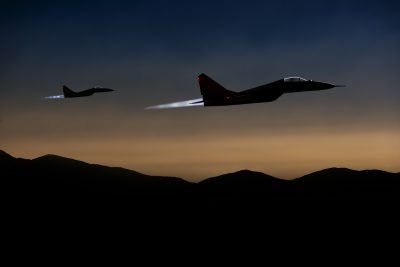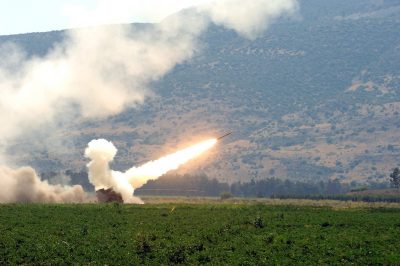The result of a national referendum in the Kurdish region in northern Iraq once again raises the question of the future of the Kurds in the Middle East. While most of the attention is directed at Iraqi Kurdistan, we should also focus on the Kurds concentrated in northern Syria. The Kurds constitute about 15 percent of the entire Syrian population. The vast majority of them, about two million people, live in an area covering about 15 percent of Syrian territory, near the border with Iraq and Turkey.
The West must leverage the de facto division of Syria and help to strengthen the Kurdish entity that has become consolidated in the north. The increased strength of Iran in the Middle East and its takeover of sizable parts of Syria and Iraq create a commonality of interests on the strategic level between the Kurds and anyone who sees the strengthening of the Iran-Assad axis as a negative development in the region.
During the stages of war against Islamic State, the United States identified the potential involved in assistance to the Syrian Kurds, and turned them into allies, established bases in their territory and sponsored the process of rehabilitation and normalization of life there.
But just because of the success of this alliance, and the anticipated final elimination of the last pockets of Islamic State resistance in the Syrian space, a question may arise regarding a continuation of the American presence in these regions. A total U.S. exit from this space is liable to create a genuine threat to the Kurds’ developing autonomic entity in Syria, in the guise of cooperation between the Iran-Assad alliance with the Turks, who are also less than pleased with the rise of the Kurds as an independent power in the region.
The free world must prepare for this challenge and make every effort to prevent the regime of Syrian President Bashar Assad to complete taking control over this area – with the support of Iran and the cooperation of Shi’ite militias and Hezbollah.
First and foremost, every effort must be made to establish a no-fly zone that will protect the Kurdish-Syrian space. This is a crucial element in any agreement, which will grant the Kurds in northern Syria the ability to defend themselves.
The Syrian Kurds are an important factor in the region, they are acting with determination against the jihadist militias and at the same time are trying to establish a democratic governmental system. They are allies of the United States and are not hostile to Israel. The changes that have taken place in Syria have created an opportunity for the West to establish a Kurdish counterweight in light of increasing Islamic extremism and the desire for domination on the part of Iran and Turkey. Iran’s potential for nuclear aggression and the distorted nuclear agreement require forceful action to check its potential for conventional aggression in the region.
Such action against Iran must be concentrated in Syrian spaces, and there is no more effective strategy for stopping Iran than creating a pro-Western Kurdish front in this space. Strengthening the Kurds in Syria would increase the chances of turning Syria from a hostile and active anti-Israel factor to a decentralized and relatively weakened space.
As a footnote, Israel must also examine updated responses to the growing active Turkish intervention in Gaza, in Judea and Samaria and among Israeli Arabs. The existence of a Kurdish region as an autonomous district within a federal Syria, or even as an independent Kurdish state, would signal to Turkey that every side has a soft underbelly, and that there is a price to turning their back on the West and its values and to an increase in Islamist belligerence in the Middle East.
__________
Zvi Hauser is Chairman of the Coalition for the Golan; Israel’s Cabinet Secretary (2009-2013).
Zhauser@golancoalition.org | @ZviHauser



